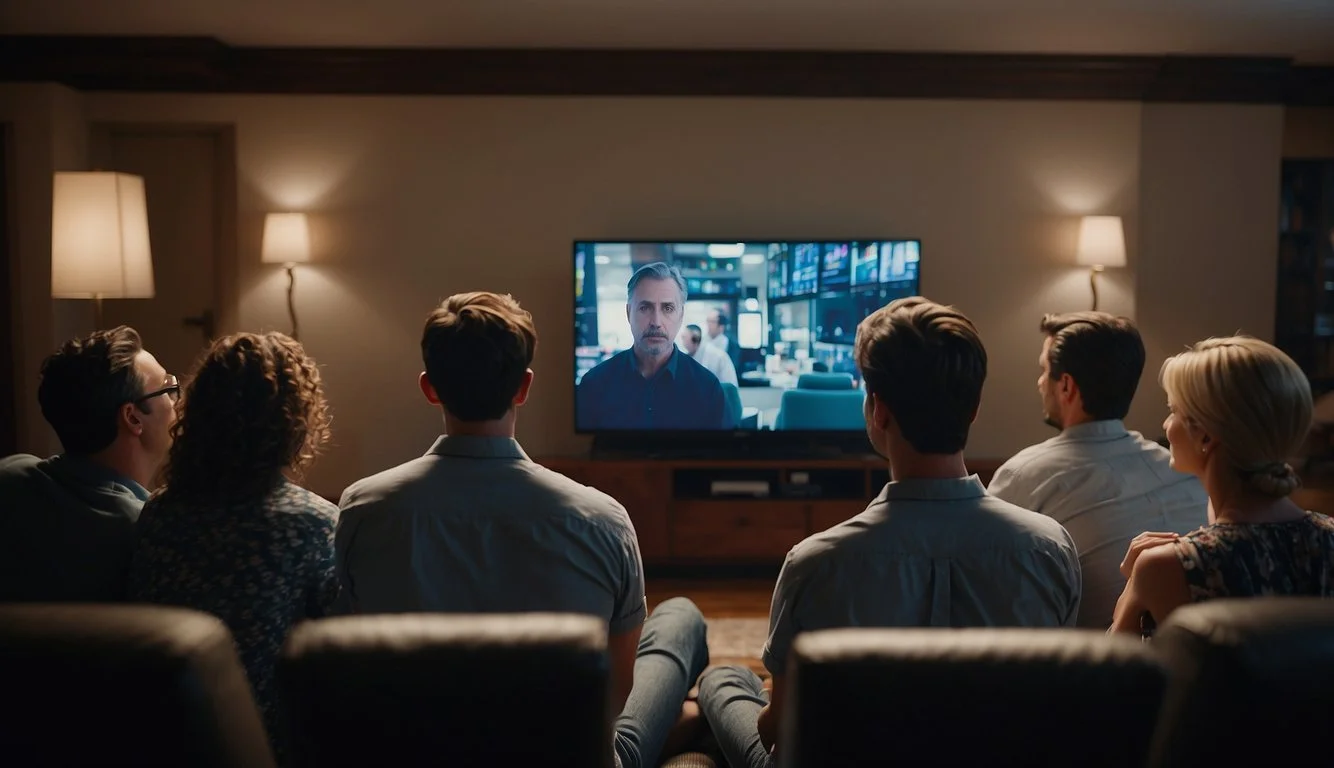Documentary Review: The Vow (2020)
A Deep Dive into NXIVM Cult
In the realm of true crime documentaries, "The Vow" stands out as a meticulous and engrossing exploration of the NXIVM cult. The nine-episode series, which aired on HBO, dives deep into the disturbing world led by Keith Raniere. Viewers are taken through the experiences of former members who reveal the manipulative and damaging practices within this so-called self-help organization.
What makes "The Vow" compelling is its detailed portrayal of how ordinary individuals got entangled in NXIVM’s web of deceit and control. The series sheds light on the psychological manipulation techniques employed by Raniere, providing a chilling look at how charismatic leaders can exploit followers under the guise of personal development.
The documentary is not just a recount of events, but an intimate look at the personal stories and struggles of those who managed to escape. Through interviews, recordings, and personal accounts, "The Vow" paints a vivid picture of the impact of NXIVM on its members' lives, making it a must-watch for anyone fascinated by the complexity of human psychology and the dark side of charismatic influence.
Background on the NXIVM Cult
NXIVM was founded in 1998 by Keith Raniere. It was promoted as a self-help organization offering leadership and personal development programs. The group's courses were marketed under the banner of "executive success."
Participation in NXIVM often required significant financial investment. Many attendees were drawn by the promise of achieving their potential and improving their lives. The organization held seminars and workshops that lasted several days.
Beneath its professional façade, NXIVM harbored darker practices. The most infamous aspect was the secret society known as DOS (Dominus Obsequious Sororium), which involved a hierarchy of women "slaves" and "masters." Members were branded with Raniere's initials and subjected to various forms of manipulation and control.
Key Figures:
Keith Raniere: The leader and founder
Allison Mack: Actress and high-ranking member
Clare Bronfman: Financial backer and board member
The cult's operations expanded to include activities that were criminal in nature, such as sex trafficking, forced labor, and racketeering. Raniere and several other leaders were arrested and prosecuted in 2018.
NXIVM's downfall was partly due to former members speaking out and the investigative journalism that exposed the cult's abuses. The 2020 HBO docuseries "The Vow" further shed light on the internal workings and the experiences of former members.
Overview of 'The Vow' Documentary Series
The Vow is a nine-part documentary series that premiered on HBO in 2020. The series provides an in-depth look at NXIVM, a self-improvement group that came under scrutiny for illegal activities.
Directed by Jehane Noujaim and Karim Amer, The Vow uses a mix of interviews, archival footage, and recordings to explore the organization and its practices.
The series particularly focuses on key figures such as Keith Raniere, the founder and leader of NXIVM, and former members who reveal their experiences. These personal stories highlight the involvement and manipulation within the group.
The documentary also sheds light on the legal battles faced by NXIVM, documenting the journey of members as they seek justice. Filmmaker and former member Mark Vicente plays a significant role in narrating these events.
Visually, The Vow is compelling, using immersive storytelling techniques to draw viewers into the complex world of NXIVM. Each episode builds upon the revelations of the preceding ones, creating a gripping narrative.
The Vow raises important questions about leadership, control, and the vulnerability of individuals in self-help groups. This meticulous exposition provides viewers with a comprehensive understanding of the rise and fall of NXIVM.
Filmmakers and Production Notes
The Vow was directed by Jehane Noujaim and Karim Amer. They are well-known documentarians who previously collaborated on other projects, such as The Square and Control Room.
Noujaim and Amer approached the story of NXIVM with an intent to go beyond sensational headlines. They aimed to provide a more nuanced portrayal of the cult and its leader, Keith Raniere.
HBO premiered the series on August 23, 2020. The network saw enough success with the initial release to renew The Vow for a second season, which debuted on October 17, 2022.
Key production details:
Format: Nine-episode docuseries
Platforms: HBO broadcast and streaming
Language: English
Genre: True Crime Documentary
The filmmakers utilized a combination of interviews, archival footage, and personal stories from former NXIVM members. This approach helped to shed light on the complex dynamics within the group.
The directors sought to tell this story with a sense of dignity, capturing the multifaceted nature of NXIVM. Their work involved in-depth research and careful storytelling to avoid portraying the group in purely one-sided terms.
Analysis of Cinematography and Editing Techniques
"The Vow" utilizes distinct cinematography and editing techniques to enhance its storytelling. Key points include the structured narrative, visually compelling style, and the rhythmic pacing that maintains viewer engagement.
Narrative Structure
The documentary employs a nonlinear narrative structure, shifting between different time periods. This method effectively unravels the mystery of the NXIVM cult, sustaining audience curiosity by gradually revealing key events and character transformations.
Interviews, archival footage, and personal video diaries are interwoven. The juxtaposition of past and present keeps viewers attentive and aids in drawing connections. Detailed character arcs are methodically explored, ensuring the complexity of the subjects is fully conveyed.
Visual Style
"The Vow" incorporates a blend of stark, realistic imagery with more polished cinematography. The filmmakers, Jehane Noujaim and Karim Amer, leverage close-ups and intimate shots to capture the emotional depth of interviewees.
Neutral color palettes dominate, underscoring the seriousness of the material. However, brighter, more engaging visuals are occasionally introduced, providing visual relief. The choice of settings, ranging from somber interview rooms to dynamic outdoor environments, enhances narrative impact.
Pacing and Rhythm
Pacing is crucial in "The Vow," given its nine-episode format. The series displays a deliberate, steady rhythm, allowing viewers to absorb detailed information without feeling overwhelmed. While some critics argue that this leads to repetition, the consistent pace is generally effective in maintaining engagement.
Editing choices, such as the length and sequencing of scenes, are meticulously crafted. Tense moments are given room to breathe, and transitions between different narrative threads are smooth. This careful orchestration of pacing ensures that each episode feels cohesive and purposeful, contributing to the overall immersive experience.
Discussion on the Series' Objectivity
The Vow aims to provide a comprehensive look at the NXIVM cult, focusing on factual representation and careful interview techniques to convey its subject matter accurately.
Representation of Facts
The Vow pulls from a variety of sources, including court documents, personal testimonies, and archived footage. By integrating these diverse materials, the series ensures a comprehensive portrayal of NXIVM's operations and the experiences of its members. The use of original content such as recordings from inside the organization lends credibility to the narrative.
Attention to detail is crucial, as inaccuracies can easily distort the public's perception. Utilizing firsthand accounts helps to maintain an objective stance, distinguishing between personal opinions and verifiable facts. This careful balance is essential in delivering a truthful narrative without unnecessary bias.
Interview Techniques
Interview techniques heavily influence the series' realism and viewer perception. The Vow employs a mix of interviews with former members, legal experts, and investigative journalists to offer multiple perspectives. This diversity allows the audience to form a well-rounded view of NXIVM.
Interviews are structured to elicit detailed responses, highlighting key events and personal experiences. By framing questions that encourage detailed storytelling, The Vow offers depth and nuance, moving beyond surface-level narratives. This method contributes significantly to the series' objectivity, ensuring that the information presented is both rich and reliable.
Impact on Public Perception of NXIVM
"The Vow" had a significant impact on how the public perceived NXIVM. The docuseries, with its detailed exploration of the cult's inner workings, left many viewers stunned by the extent of manipulation and control exercised by its leaders.
Through interviews with former members, the series highlighted how charismatic figures, like Keith Raniere and Allison Mack, played pivotal roles. These firsthand accounts provided insight into the challenges faced by those who escaped.
One particular aspect that stood out was the branding ritual involving the initials of Raniere and Mack. This revelation shocked the public and brought intense scrutiny to NXIVM's practices. Viewers were left questioning how such extreme actions could occur within what was initially presented as a self-help organization.
Furthermore, the series emphasized the psychological impact on former members. It showed the lasting effects of indoctrination and the emotional struggles faced by those who left. As a result, the public gained a deeper appreciation for the complexities of cult dynamics.
The Vow also shed light on the legal ramifications, including the arrest and conviction of Keith Raniere. The coverage of court proceedings demonstrated the serious nature of the crimes committed under NXIVM's guise.
In addition, the media coverage generated by the series played a crucial role in keeping the story in the public eye. Articles and reviews, such as those from Vulture and Entertainment Weekly, helped maintain awareness and fostered ongoing discussions about the nature of cults.
Overall, "The Vow" effectively transformed NXIVM from a relatively obscure organization into a well-known cautionary tale, impacting how the public views similar groups and making people more vigilant.
Ethical Considerations in 'The Vow'
Ethical considerations play a crucial role in "The Vow" documentary, especially regarding the approach to storytelling and the treatment of participants' privacy and consent. Both aspects significantly influence how audiences perceive the content and its authenticity.
Subjectivity in Storytelling
"The Vow" reveals the disturbing practices within the NXIVM cult, but the narrative is inevitably shaped by the perspectives of its creators and participants. The filmmakers, Jehane Noujaim and Karim Amer, focus on former members' experiences and testimonies. This subjective approach can lead to potential biases, as the narrative might emphasize certain viewpoints over others.
Careful editorial decisions impact how the audience interprets the events and characters involved. By highlighting specific individuals, the documentary can sway viewer opinions, leading to a less balanced portrayal. This selectivity showcases the complex balance between informing viewers and maintaining narrative tension, often leading to moral and ethical challenges in documentary filmmaking.
Privacy and Consent Issues
Documentaries like "The Vow" that delve into personal and sensitive matters must navigate privacy concerns and obtain informed consent from participants. The inclusion of intimate details and personal accounts of former NXIVM members necessitates clear, voluntary participation consent. Ensuring participants understand how their stories will be used is paramount for ethical integrity.
Given the legal and emotional repercussions for those featured, it is essential to handle their narratives with sensitivity. Missteps in protecting privacy or obtaining proper consent could expose participants to unintended consequences, legal actions, or emotional distress. Consequently, ethical documentary production requires rigorous adherence to privacy standards and transparent communication with participants.
Series' Role in the Broader True Crime Genre
The Vow (2020) stands as a vital entry in the true crime genre, providing an in-depth look into the NXIVM cult and its leader, Keith Raniere. By using documentary techniques that blend interviews, archival footage, and personal accounts, it delves into the inner workings of the cult.
The series distinguishes itself with its multi-part format. This enables a layer-by-layer exploration of the subject, giving viewers time to absorb the complexities of the cult's operations. It's an approach that contrasts with the often short, condensed nature of many true crime documentaries.
Compared to other true crime series, The Vow offers an immersive experience. Viewers get a sense of the psychological manipulation tactics employed by cult leaders, making it not just a crime story but also a study in human psychology and group dynamics.
Key Features:
Format: Nine-episode documentary
Directors: Jehane Noujaim and Karim Amer
Platform: HBO
Several reviewers have praised The Vow for not just recounting crimes but also for showing the personal toll on survivors. This personal narrative aspect sets it apart, bringing emotional depth to the factual recounting.
In the broader true crime genre, the series contributes to understanding how such organizations lure and control members. Its detailed storytelling and high production values make it a staple for anyone interested in the darker facets of human behavior and systemic abuse.
Conclusion and Final Thoughts
"The Vow" presents a complex portrayal of NXIVM, a notorious organization that masqueraded as a self-improvement company but was later unmasked as a manipulative and abusive sex cult. The documentary meticulously dissects the intricate web spun by its leaders, particularly Keith Raniere.
Viewers may find the nine-episode format to be both its strength and its weakness. The extended runtime allows for a deep exploration of individual stories, shedding light on the personal impacts of NXIVM's practices. Yet, the repetitive nature of certain elements can dilute the narrative’s impact.
Critics have voiced mixed opinions. Some appreciate the comprehensive storytelling, noting how it unveils the gradual descent of the organization into darker themes. Others argue that a shorter format could have conveyed the same message more effectively.
The show skillfully illustrates the psychology of manipulation and control, offering valuable insights into how people can become ensnared by such organizations. The filmmakers' access to key figures and extensive footage adds credibility and depth to the series.
In summary, "The Vow" is a thorough and thought-provoking examination of NXIVM. It's recommended for those interested in true crime, psychological manipulation, and the complexities of cult dynamics. While it might test viewers' patience, the depth and detail it provides make for an engaging watch.






